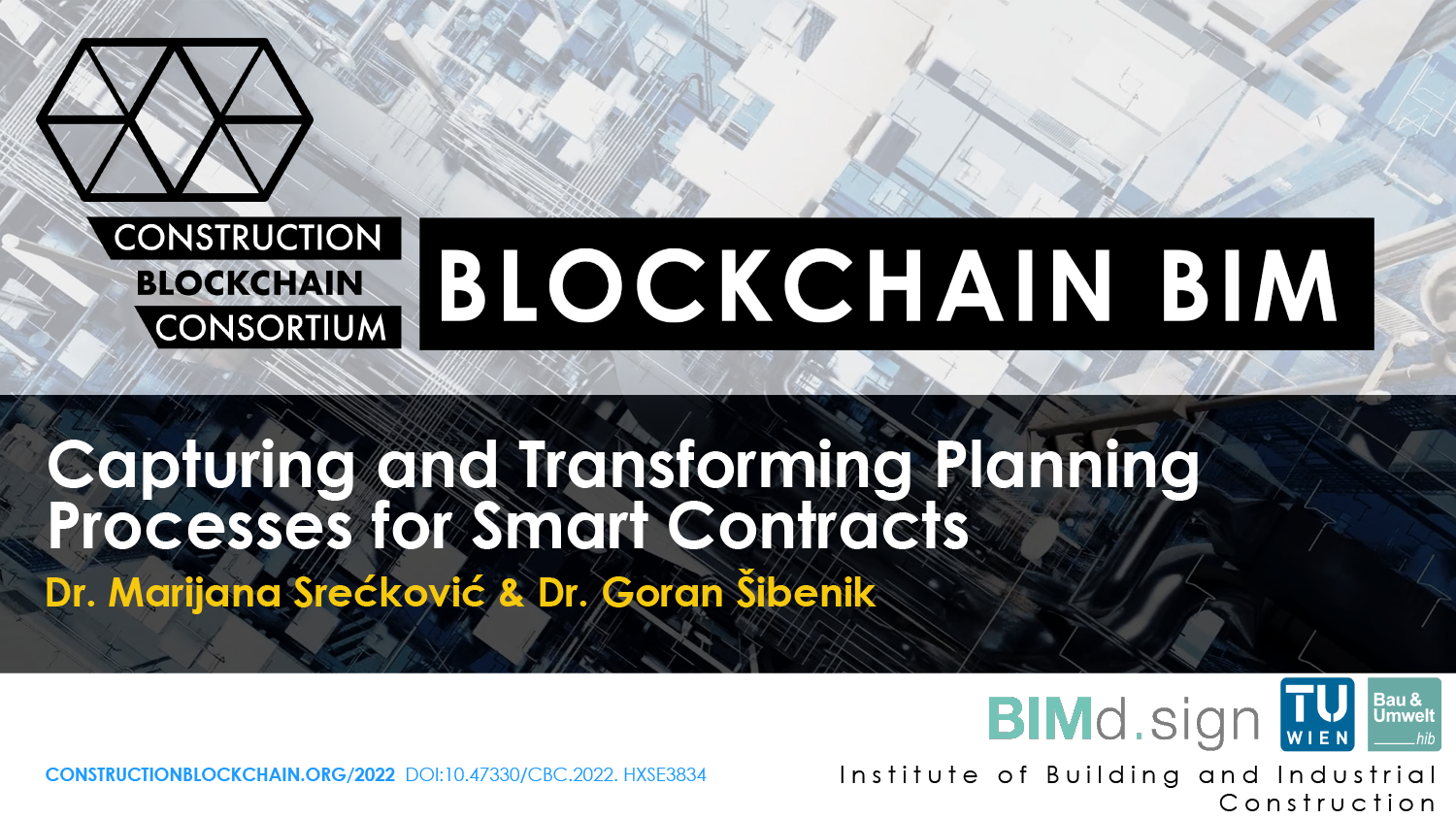Capturing and Transforming Planning Processes for Smart Contracts
Abstract
A conceptual framework for the application of blockchain technology with Building Information Modeling (BIM) in the design phase is presented, with a further use case exploration of Smart Contracts implementation. One of the main challenges in BIM workflows is the traceability of changes within a BIM model and closely coupled with it, the accountability for clearances and the sharing of model information. We argue that the different value chain activities, actors, and digital assets in the design phase could be linked on the basis of Blockchain (BC) and Smart Contracts (SC). Our BIMd.sign framework shows mainly three factors why BC and SC can be considered to deliver benefits to a BIM-based process if implemented: documentation, traceability, and transparency. We argue that the gained information from this analysis will give enough insight to evaluate the needed “level of detail” of repeating acts or sequences, in which traceability through SC can deliver a sufficient supplement respectively optimization for planning processes in the design phase. Furthermore, based on our research, we suggest that possible applications of SC in the design phase require a transformation of existing workflows for the implementation of digital technologies.
Keywords
BIM, Blockchain, Smart Contracts, Design phase, Planning processes.

